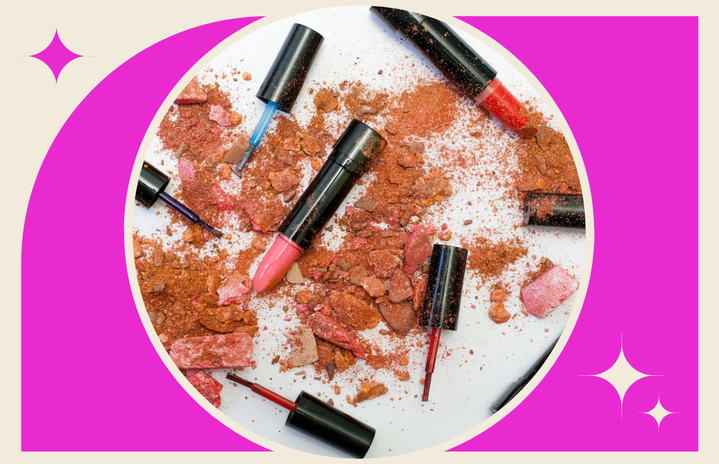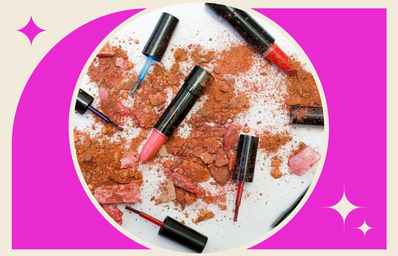How are you liking that Maybelline Super Stay Foundation? Or the new Skims set you ordered last week? The Merit lip oil in your makeup drawer? We’ve all seen the trends come and go: mini Uggs, Mario Badescu, Tarte Shape Tape. Our generation’s obsession with consumption is no secret, and staying in style feels more difficult than ever when the fads phase in and out seemingly overnight on our FYPs.
A new “trend” started taking over TikTok this past month: It’s called de-influencing. And it might be Gen Z’s solution to cutting through social media’s white noise. Everyone online is trying to sell you something, but not de-influencers.
What is de-influencing?
The new sensation intends to curb the nonstop TikTok fashion cycle and promote consumers to shop sustainably rather than relying on fast fashion or overconsumption. De-influencing also aims to take power away from influencers who are using it for brand-deal-nefarity.
For anyone who doesn’t know, here’s the TLDR on fast fashion, de-influencing’s archnemesis, from Investopedia: “Fast fashion describes low-priced but stylish clothing that moves quickly from design to retail stores to meet trends, with new collections being introduced continuously. Fast fashion is also associated with pollution, waste, the promulgation of a ‘disposable’ mentality, low wages, and unsafe workplaces.”
De-influencing is a response to capitalism.
Putting total faith in influencers can be a dangerous game, one that audiences are becoming more skeptical of as scandals arise when it’s time to promote a product. For example, popular influencers like Jeffree Star or Mikayla Nogueira have found themselves in hot water for lipsticks with swastikas branded on them circling the Internet, and a reportedly fraudulent advertisement amassing over 50 million views, respectively. Her Campus reached out to Star’s and Nogueira’s teams for comment, but did not hear back by the time of publication.
Lash-gate (re: the ad above) has totally pushed the de-influencing movement forward. The pressure to operate more authentically grows everyday for ungoverned TikTok beauty influencers. They’re facing the exact same pressure that plagued early YouTube beauty gurus, like Star, years ago.
Kyra VP and TikTok expert Marina Mansour hopped onto Linkedin to give her two cents on the issue. She wrote that while this is certainly not the end of influencer-marketing, de-influencing will help create more transparency, accountability, and trust between creator and viewer. Most interestingly, she talks about regulation.
We’ve debated internet regulation and free speech online plenty (*cough* Elon Musk on Twitter *cough*), but no one seems to be policing the Nogueiras of the world. Or L’Oréal. Between 2007 and 2017, at least five U.K. L’Oréal mascara ads were pulled for false enhancement of lashes.
Mansour says it’s time for creators to rein themselves in: “There is a growing sentiment that inflated creator fees are leading to a place where the opportunity for creator remuneration is so rich that it might lead to bad judgment and false claims,” she wrote. “There is so much more to a creator’s fee than following, but a lack of transparency around fees is creating a tension between getting paid and selling out — and audiences know the difference, I promise you.”
But de-influencing is not a perfect solution for overconsumption.
Though de-influencing started out as an effort to suggest ways to promote eco-friendly shopping behaviors, it did take a bit of a spiral. People have been jumping on the bandwagon to bash products from companies and people they don’t support, like NYX brow glue, Rare Beauty blush, ELF primer, etc.
The viewpoints of haters are subjective and not the point of the de-influencing movement. Its environmentally-conscious roots are important to respect and remember. But that may be lost on the majority of its TikTok audience.
Rolling Stone suggested that de-influencing, which exists to curtail fast fashion and mindless product sensations, could be another trend itself. De-influencing means nothing without action. And de-influencing alone can’t stop every problem with our consumer-driven society.
The movement is a result of many different cultural events: sustainability, influencer marketing, fast fashion, misleading advertisements, etc. And it makes sense that now is the time it would skyrocket in popularity, with all the beauty drama and shady business deals.
De-influencing at its core is fantastic. Declutter and prolong your products to help Earth stay healthy. But don’t fall victim to the same cycle. When everyone finds the next big thing and the hashtag stops trending, keep it in the back of your mind. Protect your peace and Mother Earth’s, too. De-influence ASAP, besties.


